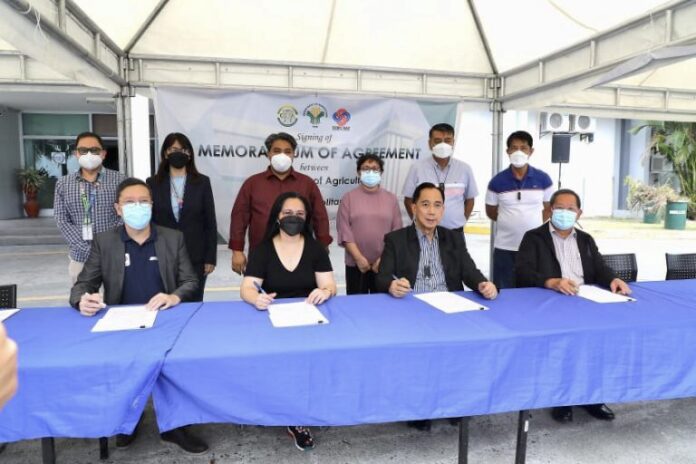
- The agreement to establish the Philippines’ first cold examination facility in agriculture was signed on Nov 26
- CEFA will enable 100% inspection of containerized animal, fish, and plant commodities
- Agriculture Secretary William Dar and Subic Bay Metropolitan Authority chairman and administrator Wilma Eisma signed the deal
- The facility is aimed at preventing smuggling of agricultural products and the entry of trans-boundary animal diseases such as Foot and Mouth Disease, Avian Influenza, and African Swine Fever
- It will be located in a 2,000-square meter property of the SBMA
The Department of Agriculture (DA) signed on November 26 a memorandum of agreement with Subic Bay Metropolitan Authority (SBMA) to establish the country’s first integrated Cold Examination Facility in Agriculture (CEFA) at the Subic Bay Freeport Zone (SBFZ).
Agriculture Secretary William Dar signed the agreement with Subic Bay Metropolitan Authority (SBMA) chairman and administrator Wilma Eisma.
READ: PH’s first cold exam facility for agri, fishery imports eyed in Subic
Dar said the facility will prevent smuggling of agricultural products and prevent the entry of trans-boundary animal diseases such as Foot and Mouth Disease, Avian Influenza, and African Swine Fever. It will also strengthen the country’s food safety regulatory system to protect consumer health, the DA said in a statement.
Dar said the Subic CEFA will ideally be constructed in a 2,000-square meter area along the San Bernardino Road near Subic’s New Container Terminal. Construction of the CEFA will cost P509.5 million and is expected to be completed within eight months upon the start of construction.
The CEFA as first border facility will be used to inspect all imported containerized agri-fishery commodities.
It will also house examination areas and laboratories for the execution of quarantine and inspection protocols of the Bureau of Animal Industry, Bureau of Plant Industry and the Bureau of Fisheries and Aquatic Resources.
The CEFA will enable 100% inspection of containerized animal, fish, and plant commodities identified via risk assessment and complemented by x-ray screening of the Bureau of Customs.
Dar said they expect 26,000 containers of meat, meat products, fisheries and plant commodities to enter SBFZ each year, citing the need to examine all these cargoes.
Eisma said CEFA will enhance the industrial and commercial activity and the free flow of goods within the SBFZ.
CEFA in SBFZ will be the first of five planned “first border control facilities” of DA. Other CEFAs are eyed in Manila, Cebu, Batangas and Davao ports.
Each facility will feature controlled temperature systems that will capacitate quarantine officers to thoroughly inspect contents of an identified high-risk containerized shipment and prevent possible spread of hazardous biological agents, such as toxins, and radioactive elements carried by imported agricultural products.
READ: Six ports to house DA examination areas for agri imports
The DA earlier said it estimates that the Subic CEFA would earn at least P130 million yearly from testing and inspection fees. The construction and operation of the Subic CEFA and other first border control facilities are expected to also generate employment in the respective localities.




